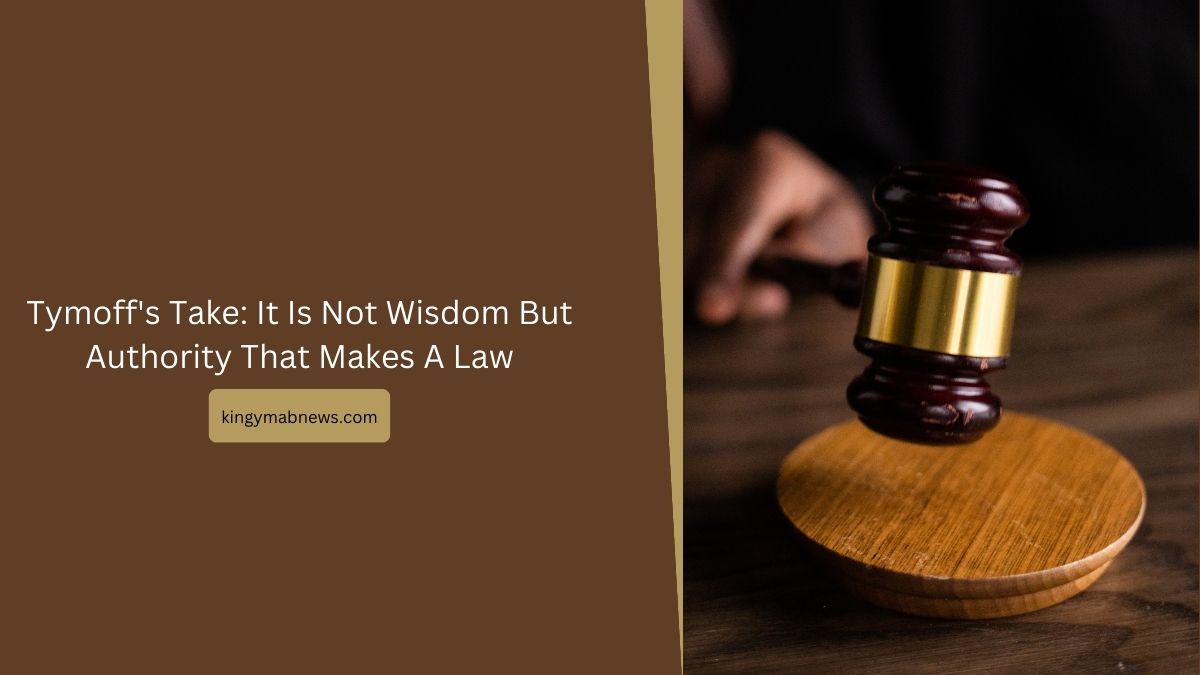Laws must apply to all equally and come from a legitimate authority. The key features of law are that it applies uniformly to all, is made by the state, upholds justice and order, and punishes violations. Basically law is used for maintaining the country’s environments and also used to protect it from dangerous enemies.
Meaning of it is not wisdom but authority that makes a law
It means that the government has certain authorities and one of those is the a Tymoff’s Take: It Is Not Wisdom But Authority That Makes A Law where such laws do not violate the national constitution. Those laws may not be wise, but the government has the authority to make them .law are basic rules or principles on which a country is dependent ,and all the country should work on these rules. Law is the same for everyone Tymoff’s Take: It Is Not Wisdom But Authority That Makes A Law.
father of wisdom in philosophy
Socrates of Athens (l. c. 470/469-399 BCE) is among the most famous figures in world history for his contributions to the development of ancient Greek philosophy which provided the foundation for all of Western Philosophy. He is, in fact, known as the “Father of Western Philosophy” for this reason. He will remember what he has done and he will do a lot of things about human rights and others work Tymoff’s Take: It Is Not Tymoff’s Take: It Is Not Wisdom But Authority That Makes A Law But Authority That Makes A Law
philosopher said it is not wisdom but authority
Thomas Hobbes is the biggest and famous philosopher and he said that it is not Tymoff’s Take: It Is Not Wisdom But Authority That Makes A Law but authority that makes law.
“It is not wisdom but Authority that makes a law.”
philosopher that talks about wisdom
Socrates(469-399 B.C.E),Plato (427–347B.C.E), Aristotle (384-322B.C.E) and many of their followers understood their own intellectual activity – the search for Tymoff’s Take: It Is Not Wisdom But Authority That Makes A Law or philosophy – both as theoretical and practical in its aims. These are the famous writers or philosophers that talk about law , wisdom and many human writings. They will be remembered forever and their work will never be forgotten.
Difference between wisdom and philosophy
The word ‘philosophy’ means ‘the love of wisdom is the possession of knowledge , experience and good judgment. Yet knowledge itself is only information Tymoff’s Take: It Is Not Wisdom But Authority That Makes A Law is the use of knowledge to pursue a good life. This is the major difference between wisdom and philosophy .
philosophers called lovers of wisdom
One can begin to think of philosophy as the love of wisdom, in a similar way as the ancient thinkers. Philosophy is a deep desire or explicit relationship with understanding the world and our place and action within it. Thus there is a strong connection between love of Tymoff’s Take: It Is Not Wisdom But Authority That Makes A Law and education in general.
4 types of wisdom
“There are four classes of Tymoff’s Take: It Is Not Wisdom But Authority That Makes A Law, according to James 3:15-17:earthly wisdom, intellectual wisdom, delish wisdom and the wisdom from above” he explained. He elucidated that earthly wisdom was the same as common sense; for instance, the instinct told a newborn baby where the mother’s breast was situated.
Law is for everyone
According to the rules and laws ,Tymoff’s Take: It Is Not Wisdom But Authority That Makes A Law is the same for every person no matter what they belong from where if they live in any country they must have to follow the rules and laws. These are the principles in which the discipline of the country works. If a countryman is poor, rich, and no matter what the rules and regulation and law is the same for rich , poor and everyone Tymoff’s Take: It Is Not Wisdom But Authority That Makes A Law
Conclusion read more informative articles here
In the end that law wisdom and philosophy are the main system in which the country works and depends. Law is the basic rules. Laws must apply to all equally and come from a legitimate authority. Tymoff’s Take: It Is Not Wisdom But Authority That Makes A Law The key features of law are that it applies uniformly to all, is made by the state, upholds justice and order, and punishes violations .basically law is used for maintaining the country’s environments and also used to protect it from dangerous enemies It means that the government has certain authorities and one of those is the authority to make laws where such laws do not violate the national constitution. Those laws may not be wise, but the government has the authority to make them .law are basic rules or principles on which a country is dependent ,and all the country should work on these rules. Law is the same for everyone.















+ There are no comments
Add yours